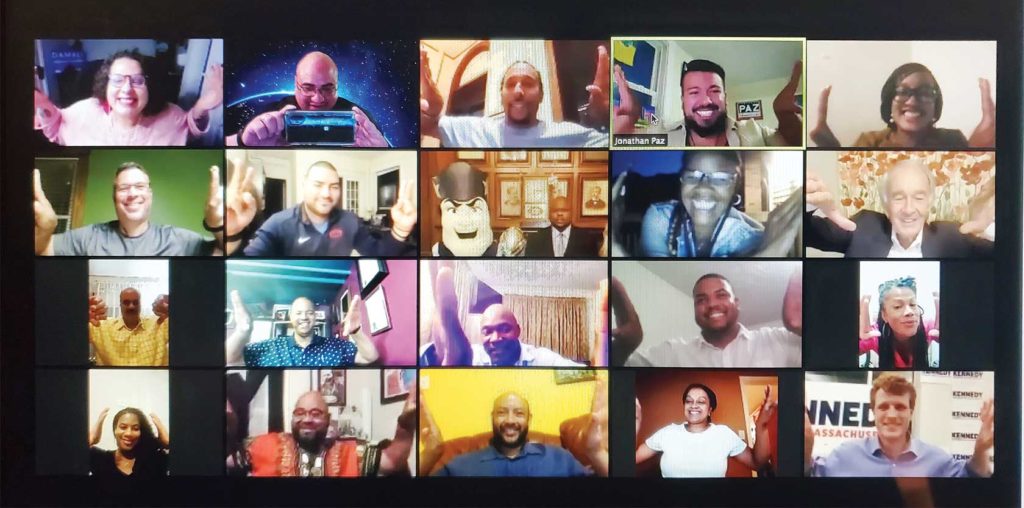
In February, the Springfield City Council voted 11-2 to ban police from using facial recognition, a technology found to disproportionately misidentify Black people. In June, the Boston City Council passed a similar resolution.
The passage of the two ordinances on opposite sides of the state was not happenstance. Black and Latino councilors from Springfield and from Boston have communicated informally for the past several years, sharing legislative agendas, strategies and sometimes language for an ordinance.
Now Black and Latino municipal officials from across the state are sharing this kind of information in a more formalized way through the newly formed Massachusetts Black and Latinx Municipal Caucus, a group made up of city councilors, aldermen, selectmen and town meeting members.
“We’re all fighting for the same things,” said Springfield at-large City Councilor Adam Gomez. “We want to make sure Black lives matter. We want economic justice. We want environmental justice. We want equity. But there’s no real connection unless people are talking to each other.”
Gomez, who is now the Democratic nominee for a Springfield-based state Senate seat, joined forces with colleagues including Boston City Council President Kim Janey, Worcester at-large City Councilor Khrystian King, Brockton at-large City Councilor Tina Cardoso, Lawrence at-large City Councilor Celina Reyes and Chelsea at-large City Councilor Damali Vidot. In all, 40 people have joined the caucus, which held its first assembly on Aug. 26, via Zoom.
The officials say they plan to offer mentoring to newly elected councilors, share ideas for how to bring about progressive changes in their cities and towns and work to increase the number of Black and Latino people elected to office in Massachusetts.
The group is also positioned to weigh in on public policy matters in the state, notes Calvin Feliciano, a political organizer who help found the caucus.
“We want to be a voice for Black and brown cities in Massachusetts,” he said.
Janey, too, said it’s important for Black and Latino local elected officials to weigh in on issues at the state level.
“We want to be able to inform state legislation,” she said. “It’s important for us, particularly now at this moment of racial reckoning.”
King, of Worcester, said issues the group will likely work on include gentrification, jobs and police reforms. He said the voice of local Black and Latino elected officials has been missing from the discourse on public policy issues at the state level.
“Massachusetts politics needs our values,” said King, who is a clinical social worker with the Department of Children and Families. “When you think about the importance of having diverse political representation, you think about how everyone brings their racial and ethnic experiences to the table. When you’re dealing with issues that are common in communities of color, there’s nothing more important than hearing from representatives who are from those communities.
The number of Black and Latino elected officials in Massachusetts is still small. While there are 351 cities and towns in the state there are only 40 members in the caucus so far. But Gomez says the group can have an impact that goes beyond its numbers, in the same way that the Black and Latino Legislative Caucus weighs in on issues in the state Legislature, despite making up just 13 of the 200 lawmakers on Beacon Hill. Gomez says the two caucuses can work together to advocate for progressive changes.
“We can add our voices to those of the Massachusetts Black and Latino Legislative Caucus,” he said.
So far, the members of the municipal caucus mostly hail from the state’s largest cities. But there are Black and Latino selectmen and town meeting members across the state. Feliciano said the group will continue reaching out to new members.
Serving in a city where people of color make up a majority of the council, Janey says she and her colleagues on the caucus can also provide something that’s often in short supply for Black and Latino elected officials in the state’s city and town halls: solidarity.
“This work is tough work,” she said. “We have colleagues who are alone in their fight and are often in hostile environments.”







